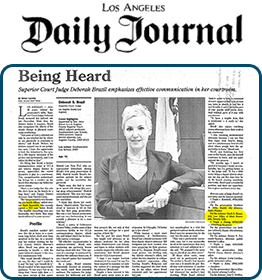What Are the Short-Term Consequences of Refusing to Take a DUI Consent Blood Test?
Someone with a Californian license who was lawfully arrested for driving under the influence in California has already agreed to take chemical tests, which means they have to take either a breath or a blood test, and there are harsher consequences or penalties if they refused or were unable to complete one. If someone refuses to submit to a breath or blood test, then the officer will note that in their paperwork and send it along to the Department of Motor Vehicles, along with their sworn statement. The DMV will review the file, and if the person had demanded a hearing within 10 days, they will hold a hearing on whether or not they refused to submit or they were unable to complete the chemical test.
If the DMV finds that the officer had reasonable suspicion to believe the person was driving under the influence and a lawful arrest was made, they will look at whether the person had been properly advised what would happen if they refused to submit to the tests. If it was found that they refused, the DMV will suspend their license for one year, meaning they can’t drive at all. It is not a restricted license, and there is no way to get it back early. That’s for a refusal on a first-time DUI; for a second DUI, the suspension is two years, while a third will be for three years. The DMV penalties are very severe; there is no grey area or room for negotiation with them. The license will be suspended if there was a refusal, and if there wasn’t, the matter will be set aside.
The court may impose their own mandatory penalties, and the district attorney may also try to impose certain optional penalties. Typically, if someone refused to submit to a breath or blood test in Los Angeles, the prosecutor will look for jail time for a first offense, and there will be mandatory alcohol and driver education classes, which will be much longer than will typically happen on a DUI. Prosecutors may also seek enhancements for someone who refused to submit to a test.
What Are the Long Term Consequences of Refusing a DUI Blood Test?
The long-term consequences from the Department of Motor Vehicles for refusing to take a breath or blood test is to leave the person with a hard license suspension for an extended period of time of up to three years. At the end of that time, they will require a special SR-22 group of insurance, which increases insurance rates for a minimum of three years. The long term effects of a refusal will be serious consequences for someone’s ability to legally drive, along with the financial ramifications – that’s just from the DMV. The long term effects through the court may include the possibility of longer probation, increased fines, longer classes and the potential for extra jail time and community service, added to what may normally be expected for a DUI.
What Requirements Must Be Met Before a DUI Consent Blood Test Is Administered?
In order to have a valid blood test for a DUI, the investigating officer will need either the person’s consent or a warrant to draw the blood, since it doesn’t fall under the implied consent laws and the blood must be drawn in a medically approved manner (including who draws the blood, where it was drawn and how a person is treated when the blood was drawn). The police officer has the option of getting a warrant if the person consents.
Blood is drawn at local jails or hospitals, and it is even sometimes drawn on the side of the road. Many variables in a DUI case exist, and the situations vary from case to case with regard to accepted medical practice or an acceptable method for taking the blood. The officer must have reasonable suspicion to conduct the initial stop and probable cause to make a lawful arrest, even before the person can be asked to have blood drawn.
How Accurate Are the DUI Consent Blood Tests?
The accuracy of blood testing depends on who, what, where, when and how the blood was drawn. The integrity of the sample must be maintained if the blood was drawn in a medically approved manner, into proper sterile equipment and tested in a timely fashion with appropriate methods and procedures in a lab. Under those conditions, the blood test will be very reliable, but if any of the links in the chain were not performed correctly or were not trustworthy, the credibility of the blood sample will become very questionable. There can be errors in the analysis of the blood if it was not drawn in the correct way, not maintained in a certain way, or has not been properly preserved, refrigerated and transported. All of those can cause errors.
Errors can also occur if the blood was not properly analyzed in a timely fashion in an appropriate machine using an appropriate method that was up to current scientific standards because those create problems with the trustworthiness and reliability of the blood sample. The number obtained may be meaningless.
What Strategies Do You Use to Defend Clients Who Were Subjected to DUI Blood Tests?
Many different strategies can be used to deal with blood tests. We can start by trying to find out how the blood was drawn and who drew it. I have been able to successfully attack the person who drew the blood, and I have successfully defended cases based on the location of the blood draw, whether it was done in a police station or a hospital. Another successful attack would be on the results involving the equipment that was used to draw and maintain the blood.
We are able to successfully defend blood cases after looking at the person who analyzed the blood and their training, experience and qualifications. We can successfully find defenses in blood cases after looking at the equipment that was used and the method that was used. We do this to make sure current technology was used or to see if they used technology from 30- 40 years ago that had been proven untrustworthy or unreliable. We can also find defenses to blood cases with legal arguments regarding whether the blood was lawfully drawn in both a constitutional and medically approved manner. Many angles could be used to attack blood cases in DUIs in California and, more specifically, in Los Angeles.
For more information on DUI Consent Blood Tests, a free initial consultation is your next best step. Get the information and legal answers you’re seeking by calling (310) 424-3145 today.






 Personal Attention
Personal Attention Every criminal case is unique and no attorney can guarantee the outcome of a case. The information on this site is legal advertising and for general information only. Using this site, requesting books, information, consultations or communicating with Attorney Rosenfeld through its site does not form an attorney/client relationship.
Every criminal case is unique and no attorney can guarantee the outcome of a case. The information on this site is legal advertising and for general information only. Using this site, requesting books, information, consultations or communicating with Attorney Rosenfeld through its site does not form an attorney/client relationship.








